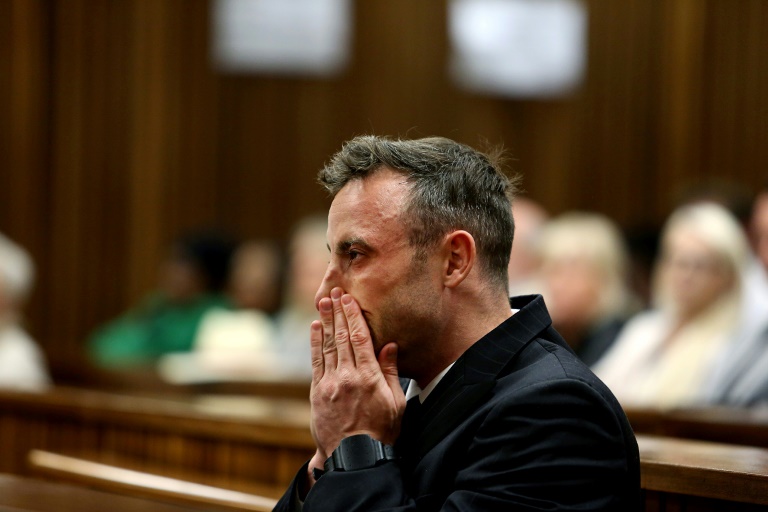South African Paralympic champion Oscar Pistorius could be granted early release from prison on Friday, a decade after he killed his girlfriend in a crime that gripped the world.
Pistorius, 37, is to appear before a parole board at a correctional centre outside Pretoria where he is currently detained.
After a hearing, the board is to review the ex-athlete’s profile and decide whether he “is suitable or not for social reintegration”, the department of correctional services said.
It will be Pistorius’ second shot at parole in less than eight months.
He lost a first bid in March, when the board found he had not completed the minimum detention period required to be let out.
The Constitutional Court last month ruled that was a mistake, paving the way for a new hearing.
Pistorius killed Reeva Steenkamp, a model, in the early hours of Valentine’s Day 2013, firing four times through the bathroom door of his ultra-secure Pretoria house.
Known worldwide as the “Blade Runner” for his carbon-fibre prosthetics, he was found guilty of murder and given a 13-year jail sentence in 2017 after a lengthy trial and several appeals.
He had pleaded not guilty and denied killing Steenkamp in a rage, saying he mistook her for a burglar.
As part of his rehabilitation, Pistorius met Steenkamp’s parents last year, in a process authorities said aims to ensure inmates “acknowledge the harm they have caused”.
But in March, Steenkamp’s parents opposed an early release, saying they did not believe the former sprinter told the truth about what happened and had not shown remorse.
“I don’t believe his story,” Steenkamp’s mother June said then.
Steenkamp’s father Barry died in September aged 80.
June Steenkamp will not attend the hearing on Friday, her lawyer Tania Koen told AFP, adding the process has been “emotionally very taxing” for her client.
A lawyer will read a victim impact statement on her behalf, Koen added, declining to comment on whether the widow will again oppose parole.
Offenders in South Africa are automatically eligible for parole consideration after serving half of their sentence.
The board, normally made up of correctional services and community members, assesses whether an inmate has been rehabilitated or still poses a danger to society.
This will take into account the seriousness of the offence as well as Pistorius’ behaviour behind bars.
“I fully trust that the parole board will apply their mind based on the information that’s placed before them,” Koen said, adding she did not believe the hearing would be “just a formality” with Pistorius set for an early release.
The panel would be different from the one that heard the case in March, she said.
Lawyers for Pistorius have said they hope that the delay caused by the mistake made in calculating the minimum detention period earlier this year will be taken into consideration and the ex-athlete be granted “an immediate release” on Friday.
Normally, it can take weeks before a prisoner who is granted parole is effectively discharged.
Release usually comes with some conditions, such as monitoring from authorities and duty to report to a community correction centre.
If denied, the offender has the right to approach the courts for review.







